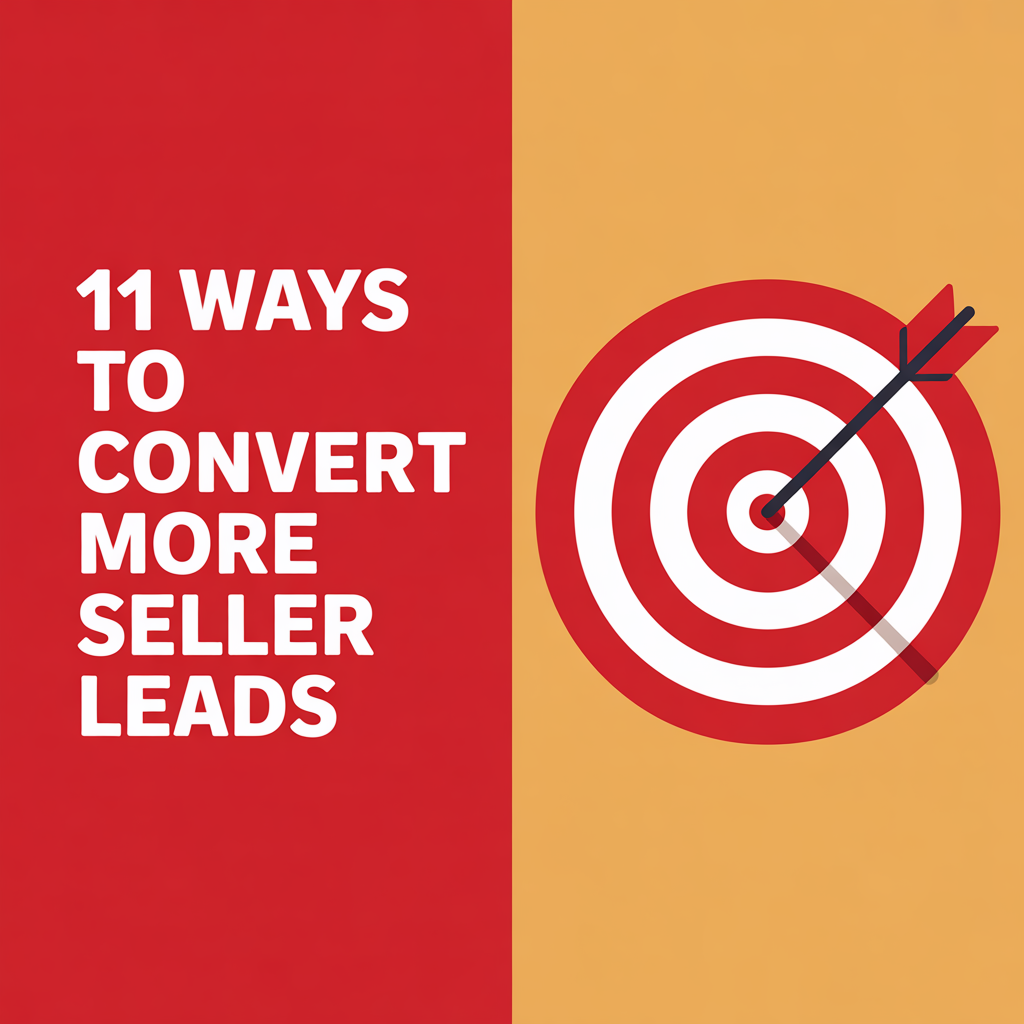In the competitive world of real estate investing, finding motivated seller leads is the key to consistently closing profitable deals. Whether you’re looking to acquire buy-and-hold properties, fix-and-flip homes, or wholesale, your ability to source off-market deals will determine your long-term success.
Mathew Pezon, a seasoned real estate investor who transitioned from a career in engineering to full-time real estate, has built a thriving business by focusing on strategic deal sourcing, financing, and property management. His journey provides invaluable insights into scaling a real estate business, finding the best deals, and leveraging marketing strategies that work.
Interestingly, Pezon also explored various personality assessments like Myers-Briggs to understand his strengths. He plans to take the Predictive Index (PI) test to further refine his approach to business decision-making.
In this guide, we’ll explore Pezon’s strategies for acquiring rental properties, managing cash flow, and utilizing direct mail to find high-quality investment opportunities.
The Journey from Engineer to Full-Time Investor
Mathew Pezon’s real estate journey began in 2014 when he bought his first property after returning from business school in Spain. Like many successful investors, he started small, using creative financing methods such as personal loans and refinancing his car to fund his deals. Over time, he scaled his portfolio while working a full-time job before finally making the leap to real estate full-time in 2022.
His background in engineering played a role in his analytical approach to investing. However, as he transitioned into entrepreneurship, he had to overcome analysis paralysis and shift his mindset toward taking calculated risks and executing deals more efficiently.
During this time, Pezon also experienced his first loss in real estate—a $5,000 mistake on an attempted flip. This experience reinforced the importance of proper deal analysis and due diligence, shaping his future investment decisions.
How to Acquire and Finance Rental Properties
Pezon primarily focuses on buy-and-hold real estate investing. His initial deals followed the BRRRR method (Buy, Rehab, Rent, Refinance, Repeat), allowing him to scale quickly with minimal capital. Over time, his funding strategies evolved to include:
- Cash purchases – When sellers need a fast close, having cash on hand provides a competitive edge.
- Lines of credit – Business lines of credit provide flexibility to finance new acquisitions.
- National lenders – Programs that allow 10% down payments help investors acquire properties with less capital upfront.
- Local banks – Smaller banks often offer competitive commercial loans, sometimes with higher loan-to-value (LTV) ratios and fewer restrictions.
One bank Pezon recommends for investors in Pennsylvania is S&T Bank. With flexible financing terms and no seasoning period, this local lender has been a game-changer for investors looking for quick refinances and better loan terms.
Evaluating Investment Properties: The 80% Rule
A major factor in Pezon’s success is his disciplined approach to deal analysis. Unlike flippers or wholesalers who need a bigger spread, his 80% rule ensures he can make strong cash offers without middlemen taking a cut. This means he aims to be all-in (purchase + rehab costs) at 80% or less of the property’s appraised value. This approach allows him to refinance properties easily while maintaining strong equity positions.
The Importance of Rental Cash Flow
While cash flow is crucial, Pezon focuses on total return on investment (ROI), including appreciation and tax benefits. He looks for a minimum 21% internal rate of return (IRR) on each deal. His typical cash flow goal is at least $150 per door, but he prioritizes overall portfolio growth rather than optimizing individual property cash flow.
Pezon also notes the differences in market conditions between Pennsylvania’s regions. For instance, while properties in Pittsburgh may have strong appreciation, rental yields tend to be lower compared to the Lehigh Valley, where a stronger rent-to-value ratio allows for better long-term cash flow.
Property Management: Why It’s Better to Outsource
One of the biggest pain points for landlords is property management. Instead of managing units in-house, Pezon works with a third-party property manager to handle tenant relations, maintenance, and lease enforcement.
How to Choose the Right Property Manager
Many investors make the mistake of hiring the cheapest property manager, but Pezon emphasizes looking at the bigger picture:
- Turnover rate matters – A good manager should keep tenants for four to five years, not just turn units for extra leasing fees.
- Occupancy tracking – Ask potential managers about their economic occupancy rate and tenant retention strategy.
- Total cost vs. monthly fee – While some managers charge higher fees, they often save investors money by minimizing vacancy and reducing costly repairs.
- Financial transparency – A sophisticated manager should handle tax and insurance payments to ensure smooth accounting.
Direct Mail: The Best Way to Find Off-Market Deals
Despite the rise of digital marketing, direct mail remains one of the most effective ways to generate motivated seller leads. Pezon has refined his direct mail strategy over the years, moving from handwritten letters to an automated, data-driven approach.
How to Structure a Direct Mail Campaign
- Use Company Branding – Instead of sending vague yellow letters, Pezon’s mailers look professional, feature his company’s branding, and include a QR code linking to his website.
- Automate with CRM Integration – By using Left Main CRM, he tracks responses, categorizes sellers based on motivation, and follows up efficiently.
- Target High-Distress Sellers – He focuses on mailing lists that include:
- Delinquent taxes
- Divorce filings
- Pre-foreclosures
- Utility shutoffs
- Probate and inherited properties
- Consistent Follow-Up – The key to success with direct mail is persistence. He re-mails potential sellers every 6-8 weeks to stay top of mind.
Why Consistency is Key in Marketing
Many new investors get discouraged when they don’t see immediate results from their marketing campaigns. Pezon emphasizes the importance of running at least six months of consistent marketing before evaluating success. Whether it’s direct mail, SEO, or pay-per-click (PPC) ads, sticking with a strategy long-term yields the best results.
Scaling a Real Estate Business with Systems
As Pezon’s business has grown, he has focused on building systems and processes to scale efficiently. One of the most impactful changes has been hiring a team and leveraging technology like Left Main CRM to automate workflows.
Key Takeaways for Scaling:
- Document every process – Record tasks as they are performed to create training materials.
- Hire for delegation – Build a team that can handle tasks you don’t need to do personally.
- Leverage software – A strong CRM system can track deals, manage leads, and automate marketing.
- Think long-term – Avoid short-term decision-making and focus on sustainable business growth.
Pezon has been implementing strategies from the book "Buy Back Your Time" by Dan Martell, which focuses on systematizing business operations and maximizing efficiency. With four full-time employees and several part-time staff, he has made process automation a priority in his business growth strategy.
Mastering Real Estate Success: Lessons from Mathew Pezon
Mathew Pezon’s journey from a W-2 engineer to a full-time real estate investor proves that success in real estate is possible with the right strategies, persistence, and willingness to adapt. By focusing on motivated seller leads, financing deals strategically, and outsourcing property management, he has built a sustainable and scalable portfolio.
For investors looking to grow their real estate business, the key is to stay consistent, refine marketing efforts, and build efficient systems. Whether you’re just starting or looking to scale, implementing these strategies will help you find better deals, increase cash flow, and create long-term wealth.
Key Takeaways
1. Motivated Seller Leads Are the Foundation of Real Estate Success
Consistent access to off-market motivated seller leads is essential for executing profitable deals, whether through buy-and-hold, fix-and-flip, or wholesale strategies.
2. Transition from Engineering to Real Estate
Mathew Pezon leveraged his analytical engineering background to evaluate deals effectively, but had to overcome analysis paralysis to act decisively in real estate. His early creative financing strategies helped him get started and scale gradually.
3. The BRRRR Strategy and Creative Financing
Pezon initially used the BRRRR method to build his rental portfolio. Over time, he diversified funding sources through:
- Cash purchases for competitive offers
- Business lines of credit
- National lenders with low down payment programs
- Local banks like S&T Bank, offering flexible terms and no seasoning period
4. Deal Evaluation with the 80% Rule
Pezon follows the 80% rule—ensuring all-in costs (purchase + rehab) are ≤80% of the appraised value. This approach maintains equity and facilitates smoother refinancing.
5. Focus on Total ROI, Not Just Monthly Cash Flow
While he targets $150 per door in cash flow, Pezon prioritizes overall return on investment (including appreciation and tax advantages), aiming for a minimum 21% IRR.
6. Importance of Market-Specific Strategy
Different regions within Pennsylvania offer varied trade-offs between appreciation and rental yield. Pezon adapts his investment approach accordingly, balancing cash flow and long-term equity growth.
7. Outsourcing Property Management Is a Strategic Move
Rather than managing properties in-house, Pezon outsources to professional property managers. He looks beyond low fees to assess:
- Tenant turnover rates
- Economic occupancy
- Transparency in financial operations
- Long-term cost-effectiveness
8. Direct Mail Is Still King for Lead Generation
Despite digital trends, Pezon swears by direct mail as his primary method for sourcing motivated sellers. His system emphasizes:
- Branded, professional-looking mailers with QR codes
- CRM integration (via Left Main CRM) for lead tracking
- Targeting distressed property lists (e.g., tax delinquency, probate, pre-foreclosure)
- Regular follow-up every 6–8 weeks for visibility
9. Consistency Is Critical in Marketing
New investors often quit too soon. Pezon stresses committing to at least 6 months of sustained marketing—whether direct mail, SEO, or PPC—before judging its effectiveness.
10. Building Systems to Scale the Business
Growth requires systematization. Pezon scaled by:
- Documenting business processes for repeatability
- Delegating tasks through strategic hiring
- Using CRM and automation tools to streamline workflows
- Implementing time-saving strategies from Buy Back Your Time by Dan Martell
11. Strategic Team Building for Long-Term Efficiency
With a team of full-time and part-time staff, Pezon has built an operation where automation and process documentation drive business growth while freeing up his time.
12. Success Requires Persistence and Strategic Execution
Pezon’s story shows that transitioning to full-time real estate is achievable with consistent effort, data-driven decision-making, and scalable systems.
13. Final CTA: Start Now with a Long-Term Vision
The blog closes with a clear message: to succeed in real estate, start generating motivated seller leads, implement marketing systems, and commit to strategic growth.
Take Action: Build Your Real Estate Empire Today
Ready to scale your real estate investing business? Start generating motivated seller leads today by implementing a direct mail campaign, leveraging data-driven marketing, and building the right team. The best deals come to those who are consistent, strategic, and committed to long-term success. Get started now and take control of your financial future!






